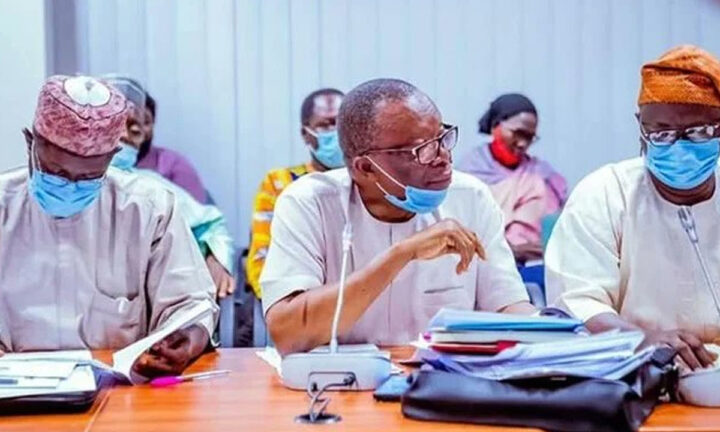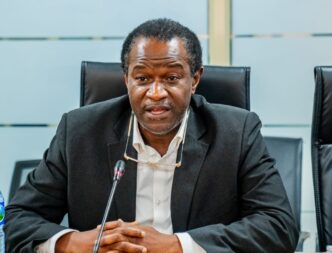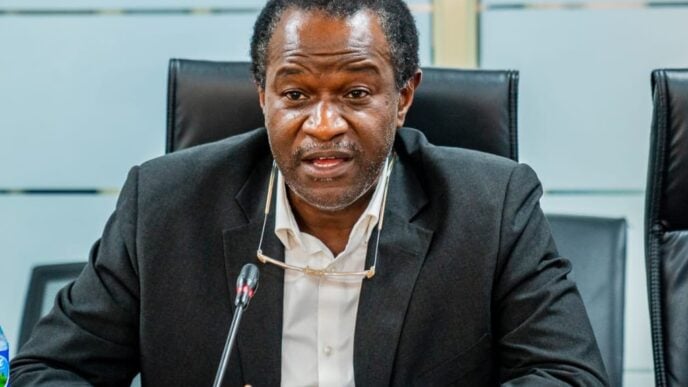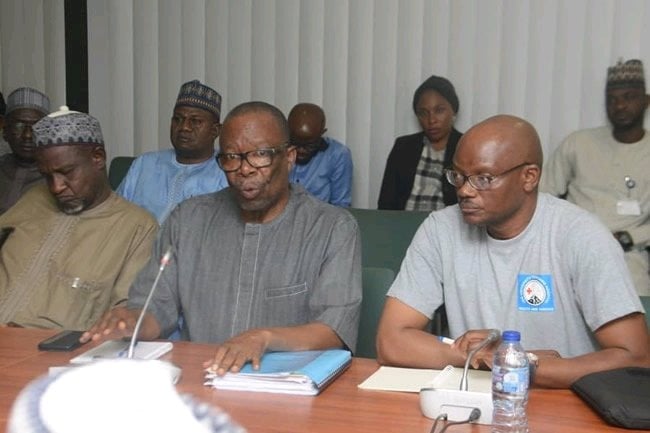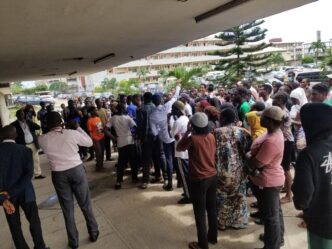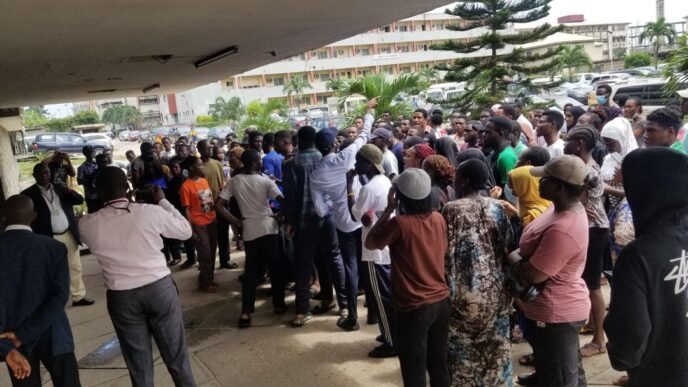The ASUU president Emmanuel Osodeke.
The federal government has re-established a seven-member committee to renegotiate its 2009 agreements with university-based unions.
Tahir Mamman, the education minister, inaugurated the committee in Abuja and gave it a three-month deadline to conclude negotiations.
The seven-member committee includes representatives from the Academic Staff Union of Universities (ASUU) and the Senior Staff Association of Nigerian Universities (SSANU).
The Non-Academic Staff Union (NASU) and the National Association of Academic Technologists (NAAT) are others.
Advertisement
Mamman said the government aims to improve the education system and guarantee strike-free university campuses.
In 2009, the federal government entered an agreement with public university unions to address long-standing systemic issues like inadequate funding, poor infrastructure, and academic staff welfare.
This agreement followed extensive negotiations with ASUU, culminating in the signing of an MoU.
Advertisement
The MoU committed the government to increasing infrastructure funding, sought financial/administrative autonomy for universities, and included provisions for competitive salaries/benefits for lecturers and other university staff.
A key aspect sought improved pension/retirement benefits for university staff and increased funding for research and development.
However, university unions argued that the implementation of the 2009 FGN-ASUU agreement has been inconsistent, with the government failing to fully execute major parts of the MoU, especially those involving funding and improved salaries.
Also, the value of the agreed-upon salary and funding rates diminished over time due to inflation as initial financial commitments became inadequate.
Advertisement
This prompted ASUU to embark on repeated strikes seeking a renegotiation of the agreements.
In 2022, ASUU embarked on what became its 16th strike in 23 years.
Osodeke said the federal and state governments failed on their promises to address the issues that prompted previous strikes.
Mamman said renegotiations began in 2017 but were delayed due to unforeseen circumstances.
Advertisement
He said that the previous committee, led by the professor Nimi Briggs, produced a draft report covering significant areas.
The minister, while reconstituting the renegotiation committee in Abuja, urged them to produce realistic agreements addressing the challenges facing Nigeria’s university system.
Advertisement
Yayale Ahmed, the committee’s chairman, asked the government to support universities in achieving global competitiveness by considering lecturer salaries as investments.
Emmanuel Osodeke, the ASUU president, said the committee would renegotiate realistically, provided the government is committed to ensuring a strike-free and stable academic calendar.
Advertisement
Following ASUU’s 2024 strike notices to the federal government, the latter has been rolling out new policies affecting universities.
In September 2024, the finance ministry was directed to allow federal universities to operate endowment funds independent of the federal treasury to grant a form of financial autonomy.
Advertisement
The accountant-general also rolled out guidelines to remove public tertiary institutions from the controversial IPPIS software, allowing these institutions to self-process their payroll.

